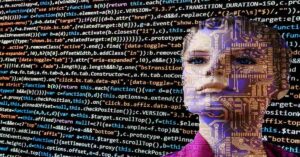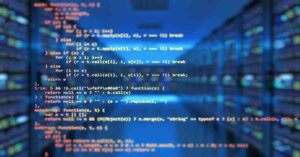Many beginners and non-programmers ask this question that what is the best way to learn python for them. This article is going to clear your doubt about the best way to learn python for non programmers and beginners.
Today I would like to talk about how you can get started properly with Python so that you have an amazing experience because if you don’t have a good experience learning something you will give up and then restart and give up.
You need to have a good plan and I hope I can provide you with a high-level structure on this in this article if something I should really mention is that please don’t have gaps in your knowledge or plan in such a way that you don’t have any gaps in knowledge because when you have those, life, later on, will become very difficult.
Let’s take an example if you skip learning about pandas to handle data sets then when you enter into the machine learning it is an absolute necessity to know pandas and numpy.
Why do you want to learn Python?
So you can’t just skip them and get straight to deep learning, so you need to have some form of instruction. Before doing anything or before starting, well in life it is not just python, in life, it is very important to answer the question of why, why do you want to do something well, why do you want to learn python?
You want to learn it because you want to get a good job? that is a good reason if so. In which domain do you want to work for a financial analysis that you know as a stock analysis company? Do you want to work for a self-driving company or do you want to work for a biopharma type company that actually deals with your knowledge of oil or imaging type biology and gas exploration?
Application of Python and Machine Learning
Machine learning or Python in general can be applied in many domains, banking networks, you name it, you have to find out what you are interested in and what you are good at, what you are going to be good at, and then move on to the next level.
The basic idea of Python
Now you have an idea, but even if you don’t have an idea, there are certain basics you need to know, so here is my proposal, let’s say you want to start learning Python or re-learn Python if you have tried it in the past.
Absolutely start with certain basics you must have the basics including how to navigate using the terminal or in windows, call this windows command prompt, how to change directories, how to find files, and you have to be very good at that otherwise how would you import a file in Python if it’s on your disk or somewhere else.
So you need to know these basic Windows terminal commands and make sure you spend at least a few hours learning about them and then install Python IDE and how to navigate the IDE, how to change the color, etc to make you comfortable because you will see the same screen over and over again.
You’d better make sure it looks pretty, otherwise, you won’t be able to see ugly things for a long time. Now how do you do it and how do you navigate those? and the next thing is to write a hello world program inside the IDE.
It’s fine in your development environment and for those of you who don’t know what I’m talking about, be it Pycharm or anaconda, you know spider or something else. So how do you write a simple line just hello world and also do the exact same thing in a notepad, just open a notepad, write this line, save the notepad as .py extension and then run it using command prompt.
The run uses python ide and in multiple ways, it gives you a good understanding and appreciation because I’m pretty sure it initially gives you an error saying oh you know it probably means the file doesn’t exist or we don’t know what you’re talking about, so you know I didn’t run this command in the correct directory so let me change it.
Fundamentals of Python
These are the things you need to learn as part of your fundamentals, well once you are done with the fundamentals now move on to the next level and the next level is normally regardless of language again.
The next level is to learn the basics what variables are, how these variables are assigned, how things are automated using for loops or while loops, what are conditions like if and else conditions, then these are also very important like what are lists, what are integers, what do you mean by floating-point, and what are areas including functions, what are functions and what are classes all this I think is fundamental.
It doesn’t matter which direction you want to go, no matter if you want to be a sports analyst or if you want to be a biologist, you need to have these kinds of fundamentals already figured out.
Deeper into python
Once you’ve got the next one, go to the next level, okay, so far it’s all the core Python functions you should know about or the ways , you deals with these, core Python functions, yeah, it’s probably the correct term, I mean, and the next level would be to extend core Python functionality by import of libraries.
What is python library?
So libraries are basically something someone else wrote and we just import and run them from our code, for example, NumPy is something you need to know you know to manipulate data and Matplotlib visualizes the data.
I want to say, you can use it to plot well, so Matplotlib is another library. I’m still talking about core libraries, I’m not talking about other fancy libraries, this is the core libraries, the other one is Pandas, not very central to Python, but it is almost an essential library if you want to get into any kind of data analysis.
You know what kind of jobs will be in the future so pandas is another library. So learn about these libraries and now get comfortable with this. Again manipulating data and areas and now you are ready to move to the next level, which is specific techniques.
Try to choose your field in Python
Now we actually diversified a bit, not from the core, but still, you should know this no matter what field you come in when I talk about specific techniques. I mean statistical packages or image analysis packages like OpenCV and scikit image and basic machine learning packages like psychic learn for example and then understand linear regression, multilinear regression, what is logistic regression, what are support vector machines and random forest so these are the things you need to know before you even move on to deep learning.
You should also get familiar with this is where you should familiarize yourself with what is TensorFlow and what is Keras. If you are very good at classes and functions you can go into PyTorch because that is fine so this is where you have an understanding of the technical level and the next level is where you branch out into a specific domain.
The domain level includes, hey do you want to go back to finance or biology or networks? or do you want to move on to natural language processing? because they each use machine learning.
They all use Keras and TensorFlow, but the way you handle the data would be different. If we talk about speech recognition, everything is the same, they are all ones and zeros, and once you master that, go into the application level when I say the level of application-specific application for biology, a specific cell biology application, a specific neuroscience application for geosciences.
So you want to separate different minerals in your image is mineralogy is petrology are you trying to do oil and gas exploration so this is where the applications specific come into the picture.
So structure you are learning in such a way that you see good progress when you go through this if you randomly just download or learn how to pip install TensorFlow and then import TensorFlow. You are not a machine learning engineer or data scientist, do not put that on your resume, do not send me that, it’s okay because this is not going to make anyone happy, neither the person who and she interviews you nor you too because you don’t want to come out of it as a looser.
In every interview, you will get it but then you will not want to be humiliated in these interviews and if you do not have this knowledge you will be humiliated because and it is a waste of time for anyone.
Conclusion
There are lots of people who want to learn Python including those who already know some other programming language. Those who already know programming or those who are already a programmer will not find any difficulty in learning python. But the non-programmers or newcomers in this programming world might face some problems while learning python because of not having proper planning.
That’s why I have explained proper planning to learn Python step by step that will help you even you are a non-programmer or beginner to python. First of all, you need to decide why do you want to learn Python? If you have a genuine reason to learn Python then only you can get success in it.
Then start with python basics and then you can move to a little deeper in python. I have clearly explained how could you do that in this article. Then actually you can decide which python field do you want to choose to get a job or to make a career.



